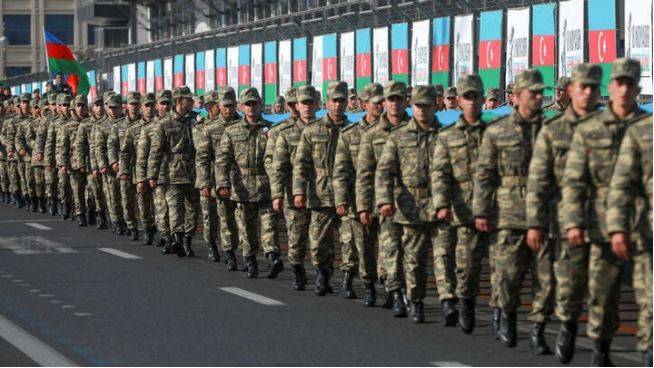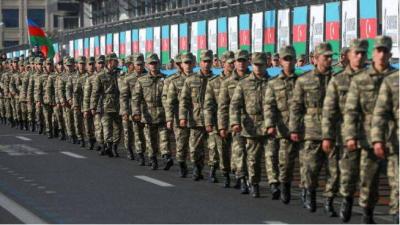Armenia has suffered "casualties" in ongoing battles on Tuesday, November 16, against Azerbaijan, raising fears of a resurgence of the conflict that erupted last year between the two rival nations in the Caucasus region. The Armenian Ministry of Defense stated in a statement that "an attack by Azerbaijani forces on Armenian positions resulted in deaths and injuries on the Armenian side" without providing specific numbers. The ministry added that Yerevan also lost control over "two military sites" as a result of these clashes, and Azerbaijan captured 12 Armenian soldiers.
On the other hand, Armenia also announced that it inflicted "heavy" human losses on Azerbaijani forces. The statement noted that "battles are ongoing and their intensity has not diminished." Armenia also mentioned that Azerbaijani forces are using "artillery and weapons of various calibers." European Council President Charles Michel called on Armenian and Azerbaijani officials on Tuesday to "halt escalation fairly" and "implement a comprehensive ceasefire."
These confrontations between Armenia and Azerbaijan erupted after several weeks of escalation, raising concerns about the resumption of bloody warfare that occurred last year between these rival countries in the disputed Nagorno-Karabakh region. The war lasted for six weeks in the fall of 2020, resulting in more than 6,500 deaths and ending in a major defeat for Armenia, which was forced to concede several areas around the disputed enclave. Russian peacekeepers were deployed in the region in November 2020 as part of a ceasefire negotiated by President Vladimir Putin.
The two countries also fought battles over Karabakh in the 1990s, in which Yerevan emerged victorious. On Tuesday, Azerbaijan held Armenia responsible for the recent clashes, stating that its forces "carried out widespread provocations" by attacking Azerbaijani positions in the Kəlbəcər and Laçın regions in western Karabakh, according to the Azerbaijani Ministry of Defense. Baku regained control of these two areas last year. The Azerbaijani Ministry of Defense stated that "Azerbaijani soldiers repelled a counterattack by Armenian forces (...). Armenian soldiers are abandoning their positions, overwhelmed by panic and fear." Baku indicated that two Azerbaijani soldiers were wounded in the battles on Tuesday.
The Azerbaijani Foreign Ministry accused Yerevan of "deliberately escalating this tension," despite the signing of a ceasefire agreement and the deployment of Russian peacekeepers. Nevertheless, tensions remain high between the two former Soviet republics, with both countries continuously reporting renewed violence and casualties among soldiers.
As tensions have escalated steadily in recent weeks between Armenia and Azerbaijan, the two former Soviet republics have exchanged accusations of gunfire along the border on Sunday. Authorities in Nagorno-Karabakh indicated on Saturday that the only road connecting Armenia to the separatist enclave at the Lachin Corridor had been briefly closed due to an incident between the two sides. After fighting erupted on Tuesday, Yerevan, a member of a Moscow-led alliance, called on Russia to intervene.
Armenia's Security Council Secretary Armin Grigoryan said, "In light of the attack against Armenian sovereign territory, we are turning to Russia to request protection for Armenia’s territorial integrity." The defeat of Yerevan last year left a significant shock among many Armenians and continues to shake the political class in the country today. Thousands of people demonstrated in Yerevan last week demanding the resignation of Prime Minister Nikol Pashinyan, whom the opposition labels as "a traitor" after he made a ceasefire agreement with Baku.
For its part, Azerbaijan relied on Turkey's support during this war, particularly receiving drones. Ankara has repeatedly called in recent months for Armenia to engage in dialogue with Azerbaijan, also stating that it is ready to normalize relations with Yerevan.




